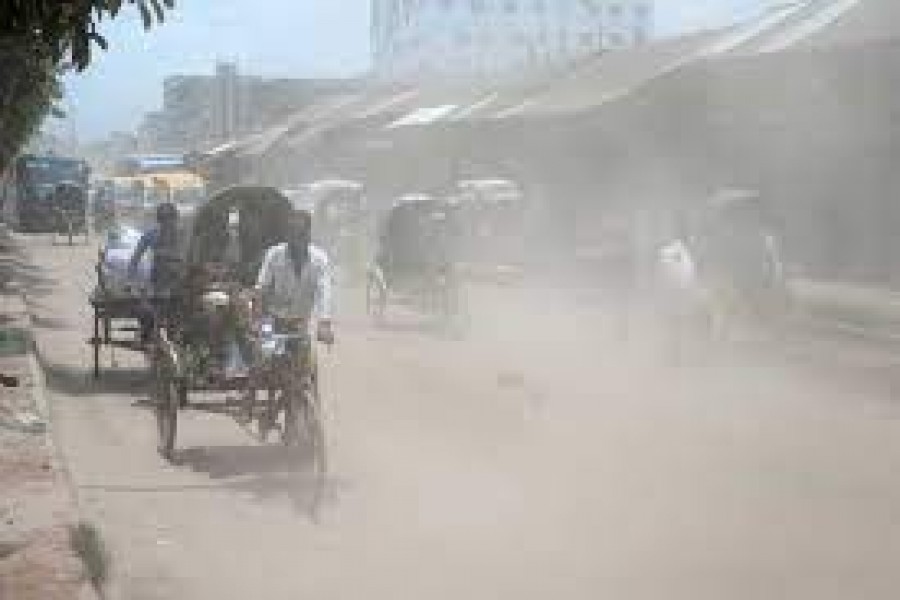The government should cut the existing high import duty on stone/rock particles to make the concrete blocks more affordable against the conventional hazardous fired bricks.
Meanwhile, the concerned regulatory body says it will allow registration of electric cars to reduce the air pollution that grips Bangladesh.
Md Jashim Uddin, president, Federation of Bangladesh Chambers of Commerce and Industries (FBCCI) made the call at a dialogue titled "Greening Cities through Reducing Air and Plastic Pollution" organised by the Centre for Policy Dialogue (CPD) on Monday in the city.
He claimed that the country’s industries are not responsible for the air pollution.
Conventional brick kilns are responsible for up to 58 per cent of the total air pollution in Dhaka.
"The government should reduce the existing high import duty on stone as Bangladesh mostly has to rely on imported stone. Stone or concrete block is so costly that people are not getting interested in using it," the business leader added.
The FBCCI president urged the Bangladesh Road Transport Authority (BRTA) to allow registration of electric cars to further reduce air pollution.
He criticised the regulatory body for not suspending registration of electric vehicles in the country.
He emphasised monitoring, management mechanism of plastic goods instead of banning methods.
Dr Dibalok Singha, executive director, Dushtha Shasthya Kendra (DSK) in his presentation said that the Dhaka city generates some 47,000 kg solid waste every day and 55 per cent of it is organic and 15 per cent is plastic. 37 per of all the solid waste is collected and recyclable.
He, however, emphasised waste source segregation and budget increase for the waste management. The DNCC announced a Tk 50 billion budget last year; only Tk 4.0 billion was allocated for waste management.
"It means only Tk 190 was allocated per person for waste management in DNCC which is insufficient," he added.
Zaved Akhtar, CEO and managing director, Unilever Bangladesh Ltd said that they have initiated a mechanism to gradually reduce the use of plastic. However, he observed that the consumers’ behaviour remains a major challenge for the change.
Syed Yusuf Saadat, research fellow, CPD made the keynote presentation while Fahmida Khatun, executive director, CPD, chaired the event.
CPD has undertaken the research study titled "Green Cities Initiative" which aims to understand the relationship between air pollution and the economy of Bangladesh, Fahmida Khatun said.


